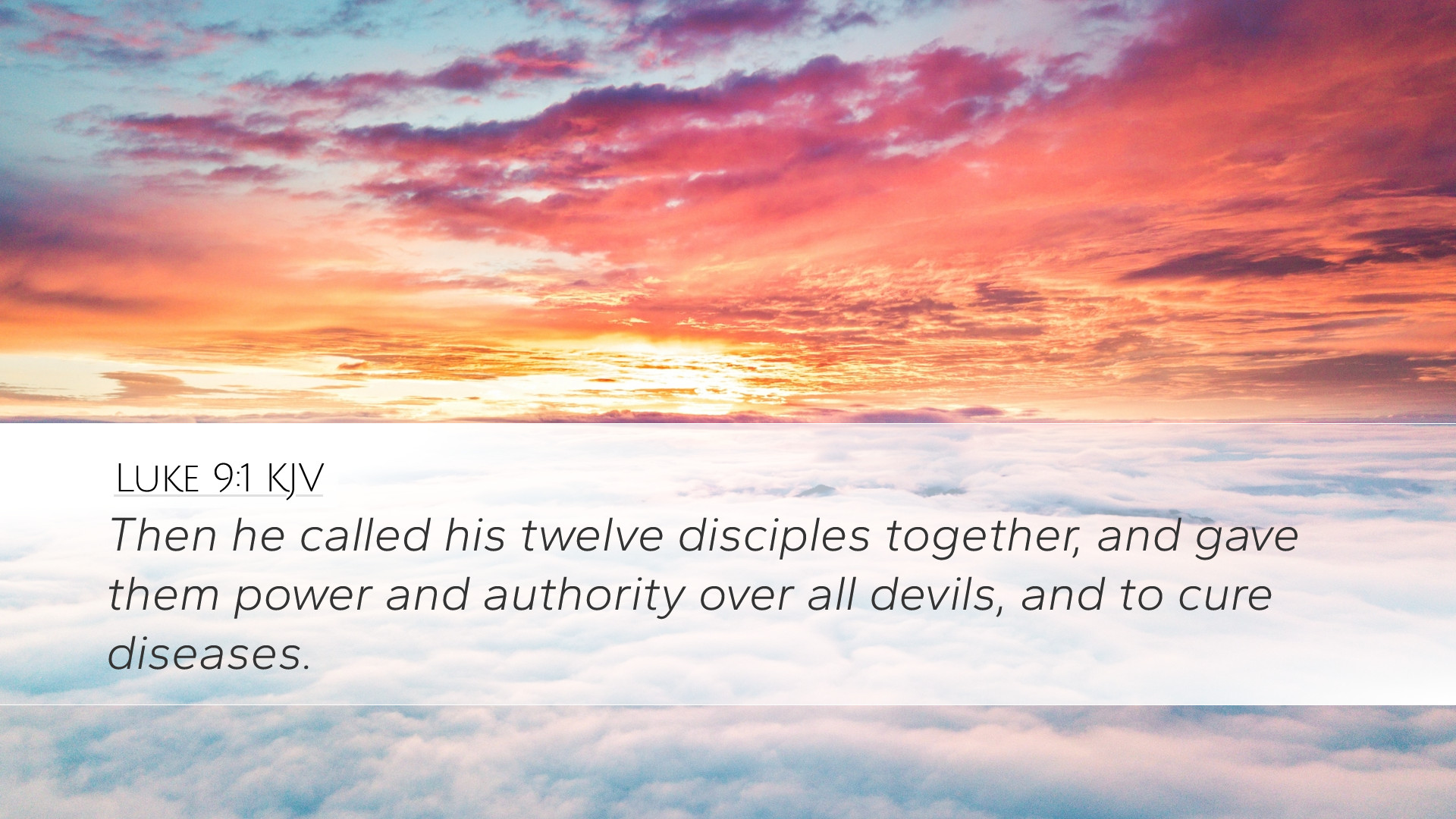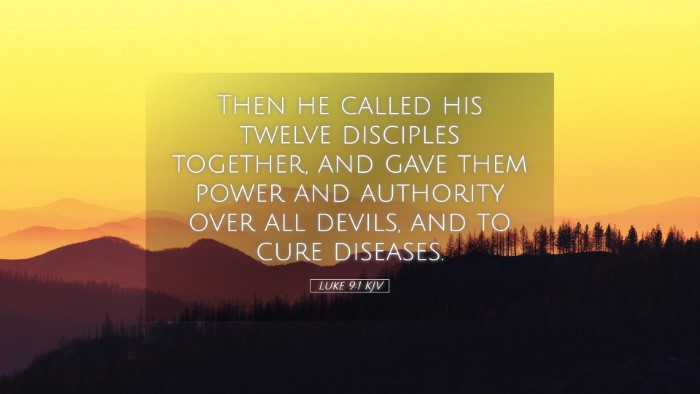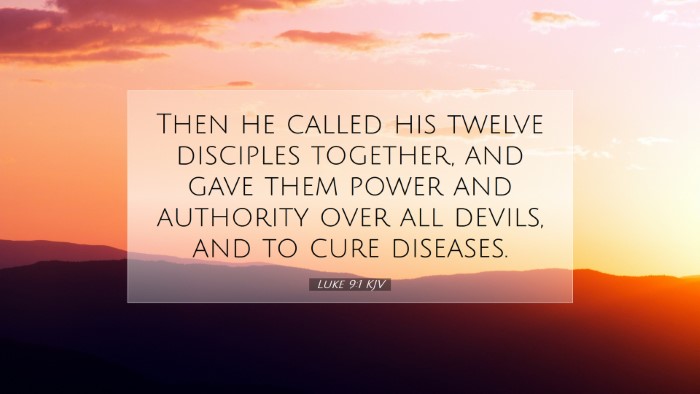Commentary on Luke 9:1
Luke 9:1 states: "Then He called His twelve disciples together and gave them power and authority over all demons, and to cure diseases." This pivotal moment in the ministry of Jesus unfolds essential themes related to discipleship, empowerment, and the authority that believers hold in Christ.
Contextual Background
Understanding the context of this verse is crucial. Jesus, in the narrative of the Gospel of Luke, has been preaching, teaching, and performing miracles throughout Galilee. He has demonstrated His power through signs and wonders, attracting the attention of many. It is in this backdrop that He prepares His disciples for a significant ministry.
Discipleship and Calling
The calling of the twelve disciples is central to this passage. Matthew Henry notes that Jesus takes the initiative in calling His disciples together. This emphasizes the importance of community and fellowship among the disciples as they embark on their ministry journey.
-
Collective Empowerment: By calling them together, Jesus not only acknowledges their personal commitment but also highlights their roles as a united front in the face of opposition.
-
The Authority of Christ: Albert Barnes emphasizes that the authority given by Christ to His disciples is a reflection of His own divinity. The empowerment they receive is not self-originated but comes from the Lord, underscoring the necessity of reliance on divine strength.
Power and Authority
Jesus gives His disciples explicit power and authority over demons and to cure diseases. The distinction between power and authority is noteworthy. Adam Clarke explains that power refers to the ability to perform miracles, while authority depicts the right to act in Christ's name.
-
Spiritual Warfare: The authority over demons signifies the spiritual warfare that exists. The disciples are called to confront evil, representing the Kingdom of God against the forces of darkness.
-
Healing Ministry: The ability to cure diseases demonstrates compassion and care for the physical and spiritual well-being of individuals, reinforcing the holistic nature of Jesus' ministry.
Theological Implications
This verse invites deeper theological reflection on the empowerment of believers. Matthew Henry posits that the same authority given to the apostles extends to the church today. Believers are called to act with divine authority in the face of spiritual challenges and social injustices.
Application for Ministry
For pastors, students, and theologians, this verse is a powerful reminder of the call to discipleship and the responsibility that comes with it. The church is entrusted with the mission of proclaiming the Gospel, healing the sick, and casting out demons, as a sign of the Kingdom’s arrival on earth.
-
Empowerment through Prayer: Continuous prayer and seeking God's presence are essential for believers to operate with authority.
-
Unity in Purpose: Just as Jesus called His disciples together, collaboration among believers is vital in carrying out the Great Commission.
-
Awareness of Spiritual Oppression: Modern believers must remain vigilant against spiritual challenges, recognizing that authority in Christ empowers them to confront these issues.
Conclusion
Luke 9:1 encapsulates the essence of Jesus' mission and the calling of His disciples. Through careful study of public domain commentaries, we glean insights that not only enrich our understanding of the text but also challenge us to embrace our roles as empowered followers of Christ. The authority bestowed upon the disciples is our inheritance as believers, compelling us to engage in the work of the Kingdom with confidence and grace.


